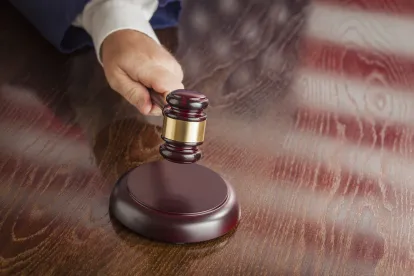Go-To Guide:
- The SBA 8(a) Business Development Program application is currently suspended due to a Tennessee district court injunction.
- The SBA 8(a) program is a nine-year program created to help socially and economically disadvantaged entrepreneurs gain access to the federal marketplace.
- Applicants actively in the process of applying should seek guidance on how the recent decision will affect their application.
- Government contractors should prepare for SBA 8(a) program changes, which may affect both prospective and current participants.
The Small Business Administration (SBA), the federal agency that administers the 8(a) Business Development Program, recently suspended 8(a) applications in response to a federal district court injunction. Following the Supreme Court’s decision in Students for Fair Admissions, Inc. v. President and Fellows of Harvard College, in which the Court limited the role race and ethnicity may play in college admissions, a federal district court has applied the Supreme Court’s reasoning to SBA’s 8(a) Program.
Background
On July 19, 2023, in Ultima Servs. Corp. v. U.S. Dep’t. of Agric., the U.S. District Court for the Eastern District of Tennessee enjoined the SBA from applying a “rebuttable presumption” of social disadvantage for certain minority groups when admitting applicants to its 8(a) program,1 thereby reversing decades of the SBA’s use of a “rebuttable presumption,” consistent with authority Congress granted the SBA. Congress granted the SBA use of the presumption through the Small Business Act, finding that certain groups “have suffered the effects of discriminatory practices or similar invidious circumstances over which they have no control” and “it is in the national interest to expeditiously ameliorate the conditions” of these groups.2 The court here ruled that this presumption violates the Fifth Amendment constitutional right of equal protection.3
The court ruled that the 8(a) program’s use of a rebuttable presumption failed the strict scrutiny test, which requires a compelling government interest for use of a rebuttable presumption, and that the program be narrowly tailored. Citing the Supreme Court’s Students for Fair Admissions decision, the district court recognized that the government has a compelling interest in “remediating specific, identified instances of past discrimination that violated the Constitution or statute.”4 Interestingly, the court decided that SBA’s stated purpose in using a rebuttable presumption to remedy the effects of past racial discrimination in federal contracting failed for two general reasons: (1) the SBA does not require agencies to have goals for the 8(a) program; and (2) the SBA does not examine whether any racial group is underrepresented in a particular industry relevant to a specific contract in the 8(a) program. These reasons led the court to conclude that “rebuttable presumption” was not susceptible to rational measure, so as to achieve the SBA’s stated intent.5 It further ruled that the SBA’s use of a rebuttable presumption failed to support a compelling interest because of the SBA and/or Congress’ failure to show:
| (1) | specific instances of past discrimination to be addressed by the rebuttable presumption; |
|
| (2) | in their reports of national disparities on various industries ties to specific actions inferencing discrimination, or ties connecting the failure of any small, disadvantaged business to its being excluded from the 8(a) program; and |
|
| (3) | that the government was a “passive participant” in any past discrimination identified, particularly in any industry relevant to the plaintiff.6 |
In finding that the 8(a) program was not narrowly tailored, the court pointed to, among other things: the lack of a formal process to overcome the presumption; the lack of any termination date or endpoint to the 8(a) program (despite the nine-year limit for each 8(a) participant); and the fact that the SBA has not revisited the need for the rebuttable presumption or considered any race-neutral alternatives since 1986.7
Potential Outcomes
Ultimately, the court ruled in favor of the plaintiff, a small, non-minority-owned business ineligible for the 8(a) program. While the full effect of the decision (including its impact on current participants) is unclear, it has already impacted the 8(a) program. Last week, the SBA officially suspended applications in response to the court’s injunction and is now revising its application questionnaire to comply with the court’s decision. Potential changes to the program may include, for example:
-
A Change to the Eligibility Criteria. The district court took issue with the fact that, historically, the 8(a) program has not considered whether an applicant was socially and economically disadvantaged for the particular industry in which the applicant operated. The SBA may examine this issue and could make certain changes accordingly, perhaps using the Woman-owned Small Business Program (WOSB) as an example. If the SBA makes these changes, the review process for 8(a) applications may well be longer, and program eligibility altered as well.
-
A Change to SBA’s Ability to Accept a Procurement. The regulations at 13 C.F.R. §§ 124.502 and 124.504 outline rules for an agency intending to award a procurement as an 8(a) contract and the SBA’s limits on accepting 8(a) offerings from agencies. These regulations consider the impact on small businesses or other small business programs an 8(a) procurement may have, and also the number of 8(a) contracts already awarded in a particular industry. However, they do not explicitly consider “whether any racial group is underrepresented in a particular industry relevant to a specific contract in the 8(a) program.”8 In making such a revision, the SBA could lengthen the time it has to accept a procurement for an 8(a) contract award. It may also affect the eligibility of businesses already participating in the 8(a) program to bid on 8(a) set-aside contracts.
The 8(a) program’s future is in flux, meaning businesses now 8(a)-qualified or considering applying to the program should monitor these legal developments and any resulting SBA regulatory changes, pending the SBA’s decision whether to appeal the Ultima case or otherwise modify the 8(a) program as a result of this recent ruling.
1 Ultima Servs. Corp. v. United States Dep't of Agric., No. 2:20-CV-00041-DCLC-CRW, 2023 U.S. Dist. LEXIS 124268, at *1 (E.D. Tenn. July 19, 2023).
2 15 U.S.C. § 631(f)(1)(A)-(D)
3 Id. at *28-29.
4 Id. at *35 (quoting Students for Fair Admissions, Inc. v. President & Fellows of Harv. Coll., 143 S. Ct. 2141, 2162 (2023)).
5 Id.
6 Id. at 37-45.
7 Id. at 57.
8 Id. at 16.




 />i
/>i

